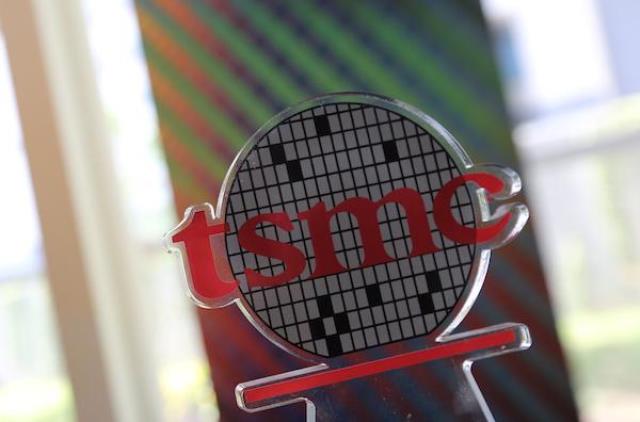The U.S. Commerce Department has announced its decision to offer subsidy of $6.6 billion to Taiwan Semiconductor Manufacturing Co’s (TSMC) in a move aimed at bolstering domestic semiconductor production.
 This subsidy is designated for the advancement of semiconductor manufacturing in Phoenix, Arizona, along with an additional provision of up to $5 billion in low-cost government loans.
This subsidy is designated for the advancement of semiconductor manufacturing in Phoenix, Arizona, along with an additional provision of up to $5 billion in low-cost government loans.
The Commerce Department previously announced incentives for Intel, GlobalFoundries, Microchip Technology, and BAE Systems.
Under the preliminary award, TSMC has committed to expanding its planned investment by $25 billion, raising the total investment to $65 billion. This expansion includes the construction of a third fab in Arizona by 2030.
The Commerce Department emphasized that TSMC’s second Arizona fab is slated to start production in 2028 and will be capable of producing 2 nanometer technology, essential for artificial intelligence and critical components of various technologies.
Commerce Secretary Gina Raimondo lauded the significance of these advancements, stating, “These are the chips that underpin all artificial intelligence, and they are the chips that are necessary components for the technologies that we need to underpin our economy, but frankly, a 21st-century military and national security apparatus.”
TSMC, the world’s largest contract chipmaker and a key supplier to tech giants like Apple and Nvidia, had initially announced plans to invest $40 billion in Arizona. The company expects to commence high-volume production in its first U.S. fab by the first half of 2025.
The investment by TSMC represents the largest foreign direct investment in a completely new project in U.S. history, according to the Commerce Department. This move aligns with Congress’s 2022 approval of the Chips and Science Act, which allocated significant funds towards boosting domestic semiconductor output through research and manufacturing subsidies.
Moreover, TSMC Arizona has pledged to support the development of advanced packaging capabilities through partnerships within the U.S., ensuring that a substantial portion of its customers, approximately 70 percent, are U.S.-based companies.
TSMC CEO C.C. Wei has expressed the company’s commitment to facilitating innovation among U.S. tech firms by enhancing capacity for leading-edge technology through TSMC Arizona.
The projects are anticipated to create 6,000 direct manufacturing jobs and 20,000 construction jobs, with 14 direct TSMC suppliers planning to construct or expand plants in the U.S. At full capacity, TSMC’s Arizona fabs will manufacture tens of millions of leading-edge chips for applications such as 5G/6G smartphones, autonomous vehicles, and AI data center servers.
Semiconductor Industry Association (SIA) in a statement said: TSMC’s announcement underscores a significant win for America’s economy and supply chain resilience. The investments made possible by the CHIPS Act are expected to generate substantial job creation and economic growth in Arizona while strengthening the country’s semiconductor manufacturing ecosystem.”
The CHIPS Act’s manufacturing incentives prompted several companies to announce dozens of new projects across 25 U.S. states — totaling hundreds of billions of dollars in private investments. These announced projects will create more than 45,000 jobs in the semiconductor ecosystem, SIA said.
The CHIPS Act funding announcement by the government to TSMC, like it did earlier for Intel or GlobalFoundries, basically confirms the serious intent of the US government to support companies that are expanding fab footprint in the US, Gaurav Gupta, VP Analyst at Gartner said.
The primary idea behind the CHIPS Act (through grants/subsidies/loans/tax breaks and any other form of support) was to drive domestic chip manufacturing in the US to develop a more resilient supply chain for semiconductors.
“Companies had been holding off announcing next phases of their projects in the US and as it became clearer that the awards would be announced based on company’s capital spending plans and future projects, we have seen a flurry of big announcements from companies – that was sort of expected and not really a surprise,” Gaurav Gupta said.
Another major point of discussion within the industry was if the government will only support domestic companies only or even multinationals. But that has been cleared with the TSMC announcement. The goal is to motivate companies to set fabs in the US and increase its regional share of chip manufacturing- the government isn’t differentiating between a domestic or a multinational company.
The US could potentially become the next big hub for TSMC fabs. TSMC, which is the largest foundry in the world by a big margin, has the largest customer base in the US where it serves the entire fabless ecosystem and several system/product companies. For several of its clients that need US-manufactured chips and were looking for diversification in the geographical source of chips, this paves a way to work even more closely with TSMC.
Baburajan Kizhakedath
